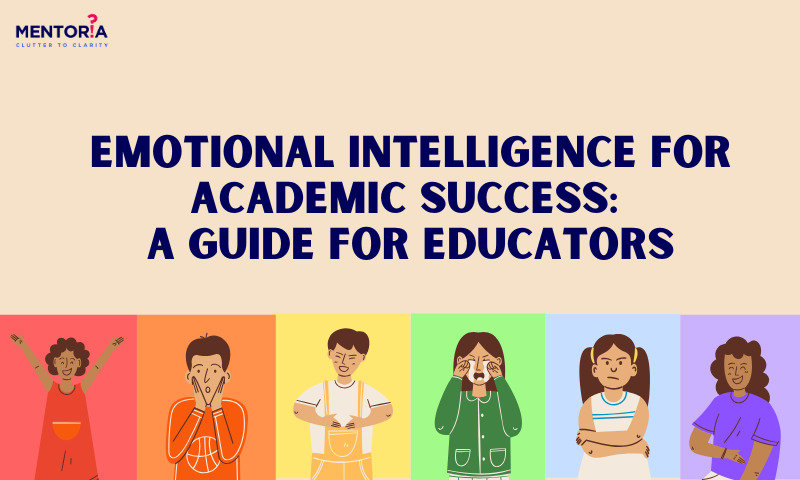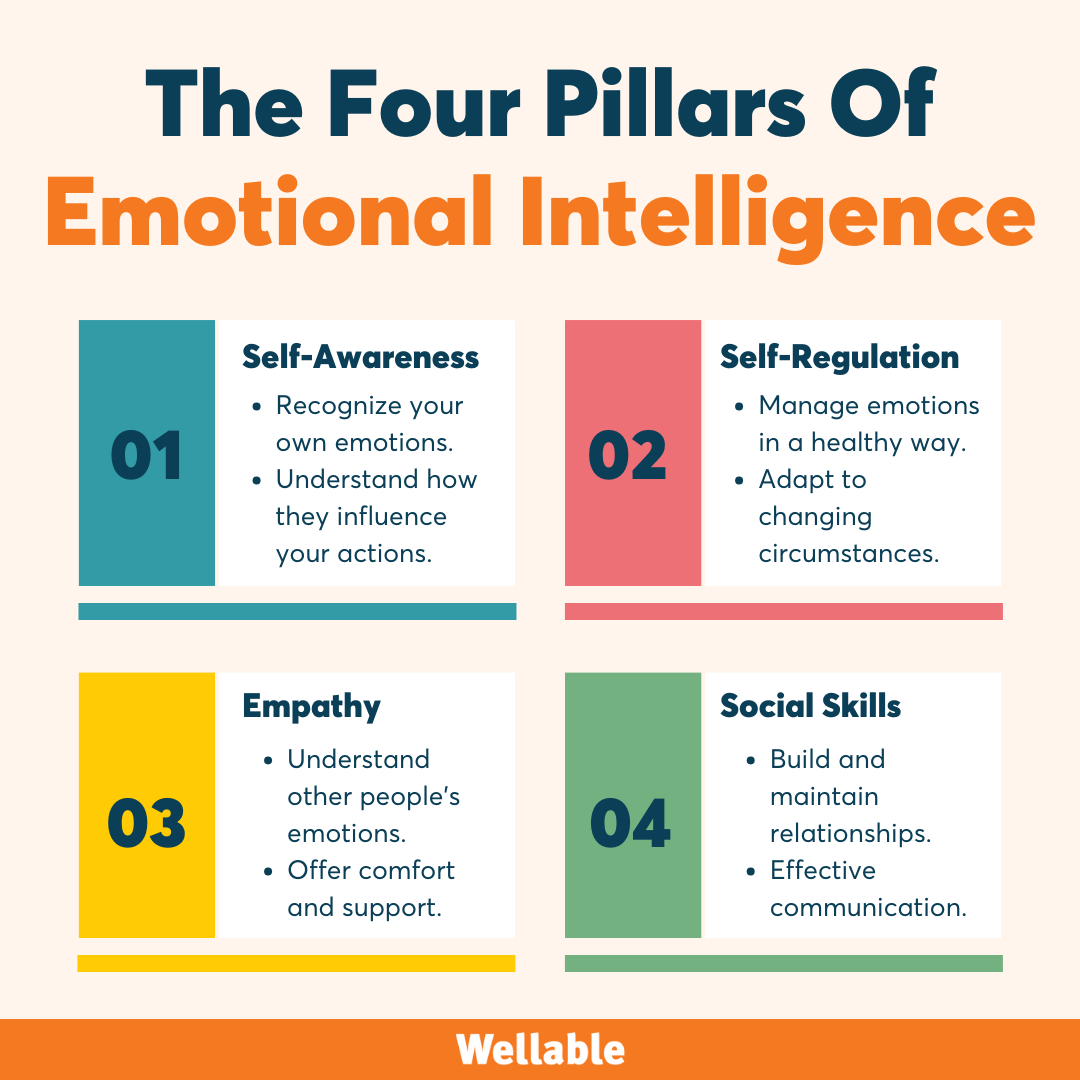Emotional Intelligence for Academic Success: A Guide for Educators

Ever feel like your classroom is full of chaos, drama, and distractions — and it’s not even lunchtime?
Emotional intelligence (EI) equips students to manage the ups and downs of school life, from staying calm during exams to working through team dynamics — and research backs this up! When students learn to recognise and manage their emotions, everything tends to run more smoothly. Their grades improve, their confidence grows, and they become more connected and capable.
A strong EI also enhances communication skills. When students can clear the clutter in their minds, they write sharper, clearer summaries. For example, when students are asked to write a precis example, an essay, or any other type of written assignment, those with strong EI can express ideas more clearly because they know how to balance logic with emotion.
What is Emotional Intelligence?
EI is made up of 5 skills that help students shine both in and out of the classroom:
- Self-awareness: The ability to notice a feeling in the moment—this is when a student becomes conscious of their nervousness before a presentation.
- Self-regulation: The regulation of emotions — like when a student takes a purposeful deep breath and does not scream away at a friend because they are frustrated.
- Motivation: The creation of an interior motivation to do the work beyond the impulse of distraction. It is what keeps a student focused on the essay while there is always something to be done on Netflix or TikTok.
- Empathy: Understanding how the other person feels. If the student can put himself in the friend’s shoes and ask, “Are you OK?” it can prevent conflicts.
- Social skills: Communication and collaborative skills such as; working through a disagreement on a group project without letting it derail.
Together, these make students who are (1) academically prepared, (2) emotionally grounded, and (3) ready to take on both school and life.
Emotional Intelligence and Academic Success
Now, let’s look at some specific ways in which emotional intelligence pays off for students in the classroom.
- Staying focused under pressure: Halfway through a maths test, a student feels the pressure rising. Rather than shutting down, they take a deep breath, stay calm, and tackle each problem one at a time.
- Bouncing back from setbacks: An emotionally intelligent student, upon coming to know that he has not done well in a test, thinks, “What can I do better the next time?” and adjusts his study approach instead of giving up.
- Adjusting to change: If the deadline for a project changes, they quite calmly adjust their schedule and avoid panic when it is too close to the actual deadline.
- Handling group work without drama: One teammate isn’t pulling their weight. Instead of blowing up, an emotionally intelligent student suggests, “Shall we split this differently, what part works for you?”
- Handling conflicts with empathy: A friend snaps at them during lunch. They don’t take it personally, just ask, “Tough day?”, and keep things from boiling over.
By building EI, we’re helping them become not just better students, but better communicators and collaborators too.
How Educators Can Promote Emotional Intelligence
Supporting students’ EI development doesn’t have to be complicated. Here are some practical strategies for building EI in the classroom:
- Use Social-Emotional Learning (SEL) Programmes
Try simple daily activities like “feelings check-ins.” Students can use colours, emojis, or a single word to express how they feel. Or, after a story, ask, “How do you think the character felt?” or “How would you handle that situation?” These small activities help students practise empathy and reflect on their emotions. - Create a Safe Space
Start the day by asking, “How’s everyone feeling?” or “What’s something you’re excited about today?” Keep it simple — thumbs up, thumbs down, or a word about their mood. These moments encourage openness and build trust within the classroom. - Use Role-Playing and Group Work
Let students act out real-life situations, like handling a disagreement with a friend or managing group project stress. It’s a fun, hands-on way to practise emotional and social skills. - Teach Self-Regulation with Mindfulness
A quick two-minute breathing exercise before a test can make a difference. Guide them with “Breathe in for three, out for three. Let’s do it together.” Practises like this help students manage stress and stay focused. - Give Specific Feedback
Instead of general praise like “Good job,” try, “I noticed how patient you were when things got tricky — that stood out.” Concrete feedback like this highlights their emotional skills, reinforcing that these qualities matter.
With these simple strategies, we can help students develop EI without it feeling like extra work. Plus, it makes the classroom a more positive space for everyone!
The Final Bell
Building EI equips students with skills they’ll use long after they graduate. In the working world, employers value people who stay calm under pressure, communicate clearly, and thrive in teams. We all want to be the person who manages a stressful project smoothly — those are the ones who get noticed (and promoted!).
To make emotional intelligence a key part of students’ academic and personal growth, Mentoria offers specialised workshops that guide educators and students in building these crucial skills. Mentoria’s workshops focus on practical strategies for developing self-awareness, empathy, and resilience — essential qualities for navigating both classroom dynamics and life’s broader challenges.
Through engaging activities and real-life scenarios, these workshops empower students to manage stress, communicate effectively, and collaborate harmoniously. By making EI a focus in the classroom, we’re preparing students for the real world — and that’s something they’ll thank us for in the long run.







